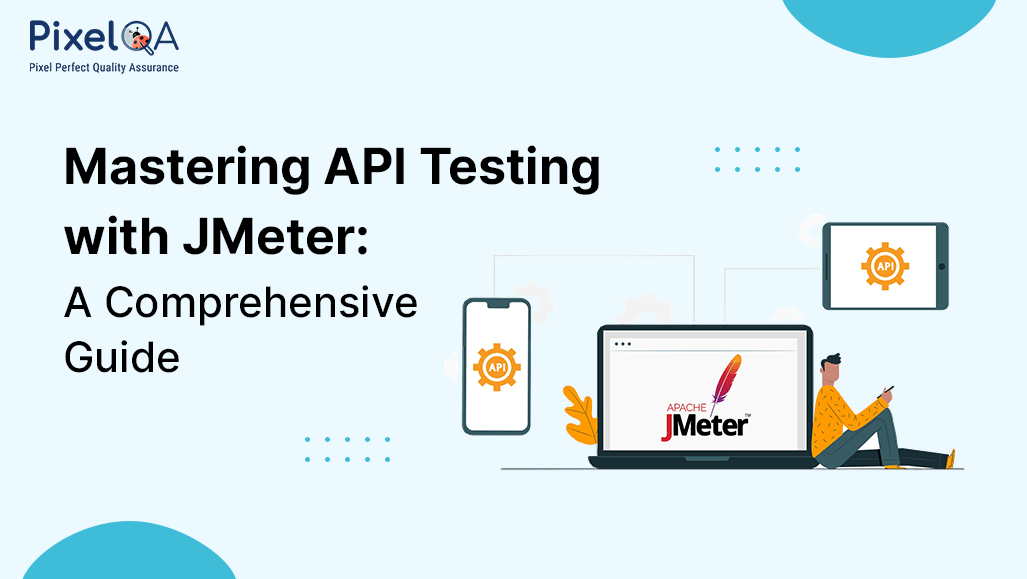
JMeter is an open-source tool that is primarily utilized for performance testing of web applications, software, and APIs. We are providing a useful resource to those who are interested in becoming experts in API testing with JMeter. It gives detailed instructions and information regarding the realm of API testing based on JMeter. Therefore, in this Blog, we will learn how to test APIs through JMeter.
Table of Contents
- What is API Testing?
- Top Reasons to Choose JMeter for API Testing
- Step-by-step Process of Conducting API Testing Using JMeter
- What is a Regular Expression Extractor in JMeter
- How to use a Regular Expression Extractor
- How to use Regular Expression Extractor in JMeter with APIs
- Conclusion
What is API Testing?
API Testing is the process of making sure that the software interfaces (APIs) that connect different parts of a program are working correctly. It's all about testing if they're speaking the same language and communicating correctly. API testing services are vital to ensure that these interfaces operate as anticipated. An API Tester conducts multiple tasks such as:
- Functional Testing: Checking that the API performs functionally as expected.
- Data Validation: Verifying that the data transferred through the API is correct and in the right format otherwise, there should be a proper Validation.
- Security Testing: Verifying that the API is secure and protected to Use.
- Performance Testing: Assessing the API's response time and handling of various loads.
- Error Handling: Testing how the API handles error conditions gracefully.
Top Reasons to Choose JMeter for API Testing
- Open-Source Advantage: JMeter gives you enterprise-grade API testing tools without the enterprise price tag. Being open-source means teams of all sizes get access to powerful features that would otherwise cost thousands in licensing fees.
- Versatility: What really sets JMeter apart is its Swiss Army knife versatility. Whether you're working with RESTful services, good old HTTP, or SOAP APIs, JMeter's got you covered. I've used it to test everything from simple microservices to complex enterprise systems with equal success.
- User-Friendly GUI: For teams worried about the learning curve, JMeter's visual interface is a game-changer. The drag-and-drop test builder means even junior engineers can create effective test scenarios quickly. After training multiple teams, I've seen how the GUI helps newcomers become productive in days rather than weeks.
- Script Reusability: One of JMeter's biggest time-savers is its script flexibility. Once you've created test scripts for one API endpoint, you can easily tweak and reuse them across your entire API ecosystem. This modular approach has saved my teams countless hours when validating new API versions or testing similar endpoints.
- Scalability Testing: Need to stress-test your APIs? JMeter shines at simulating real-world traffic loads. I recently helped a client simulate 10,000 concurrent users hitting their payment API - the kind of load that would crash poorly optimized systems. These tests revealed critical bottlenecks before they impacted real customers.
- Comprehensive Reporting: The built-in reporting tools turn raw data into actionable insights. Instead of guessing where performance issues lurk, JMeter's visual reports pinpoint exactly which API calls slow down under pressure. When debugging a sluggish inventory API last quarter, these reports helped us identify and fix a problematic database query in record time.
Step-by-Step Process of Conducting API Testing Using JMeter
Step 1) Open JMeter
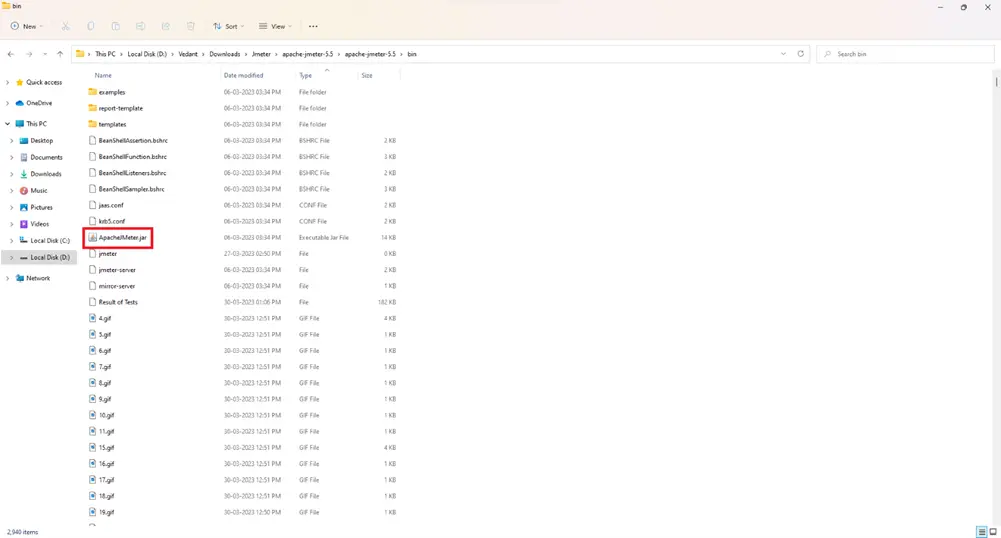
Step 2) Add thread group > HTTP Request > Listener
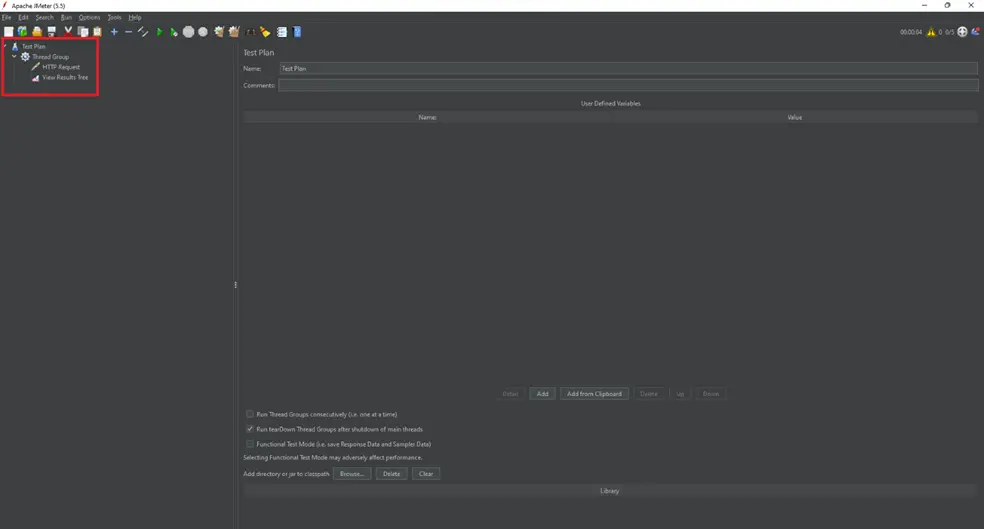
Step 3) Enter the URL in the Server name
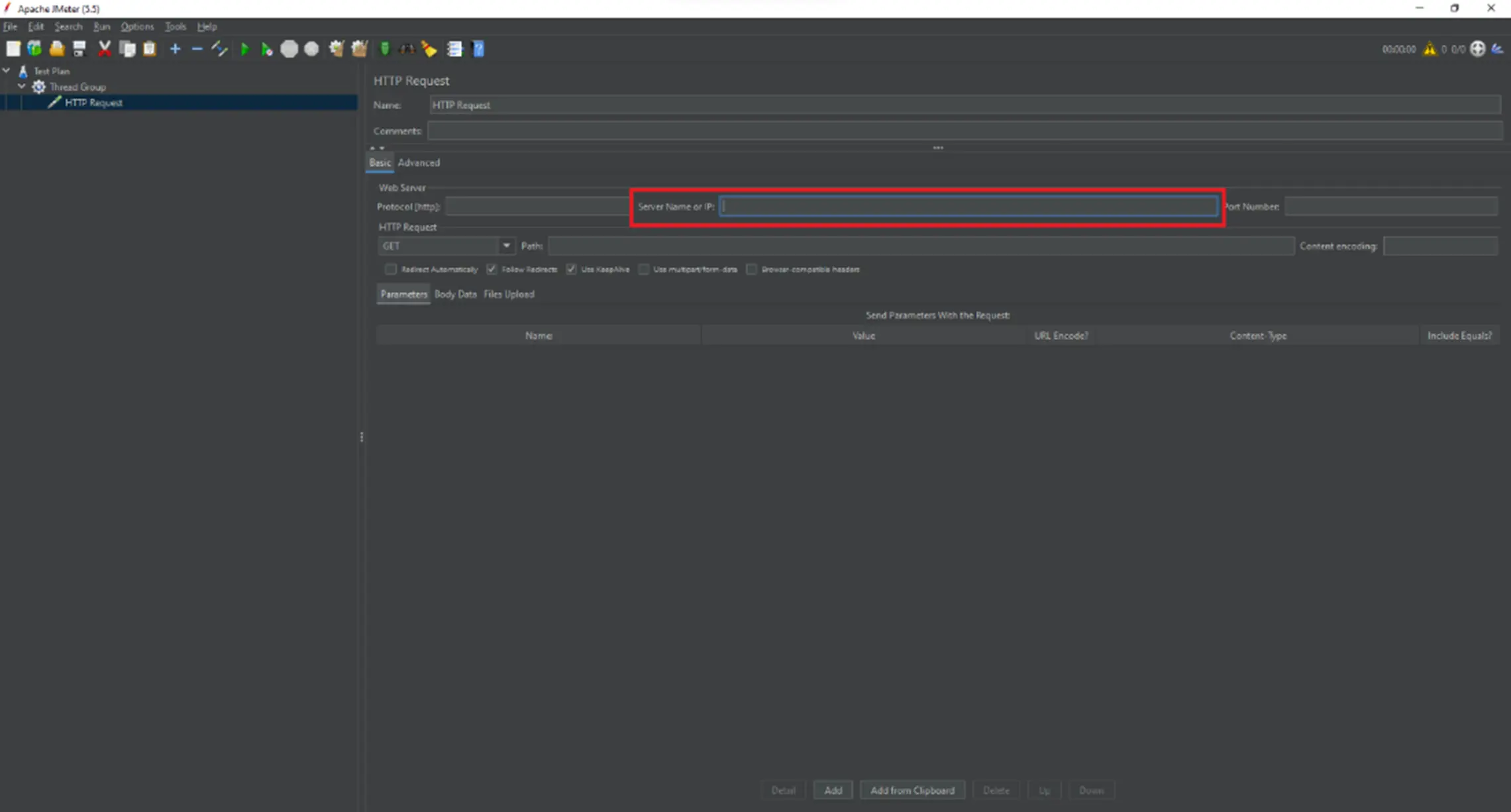
Step 4) Enter the path of the API

Step 5) Enter the request method of the API
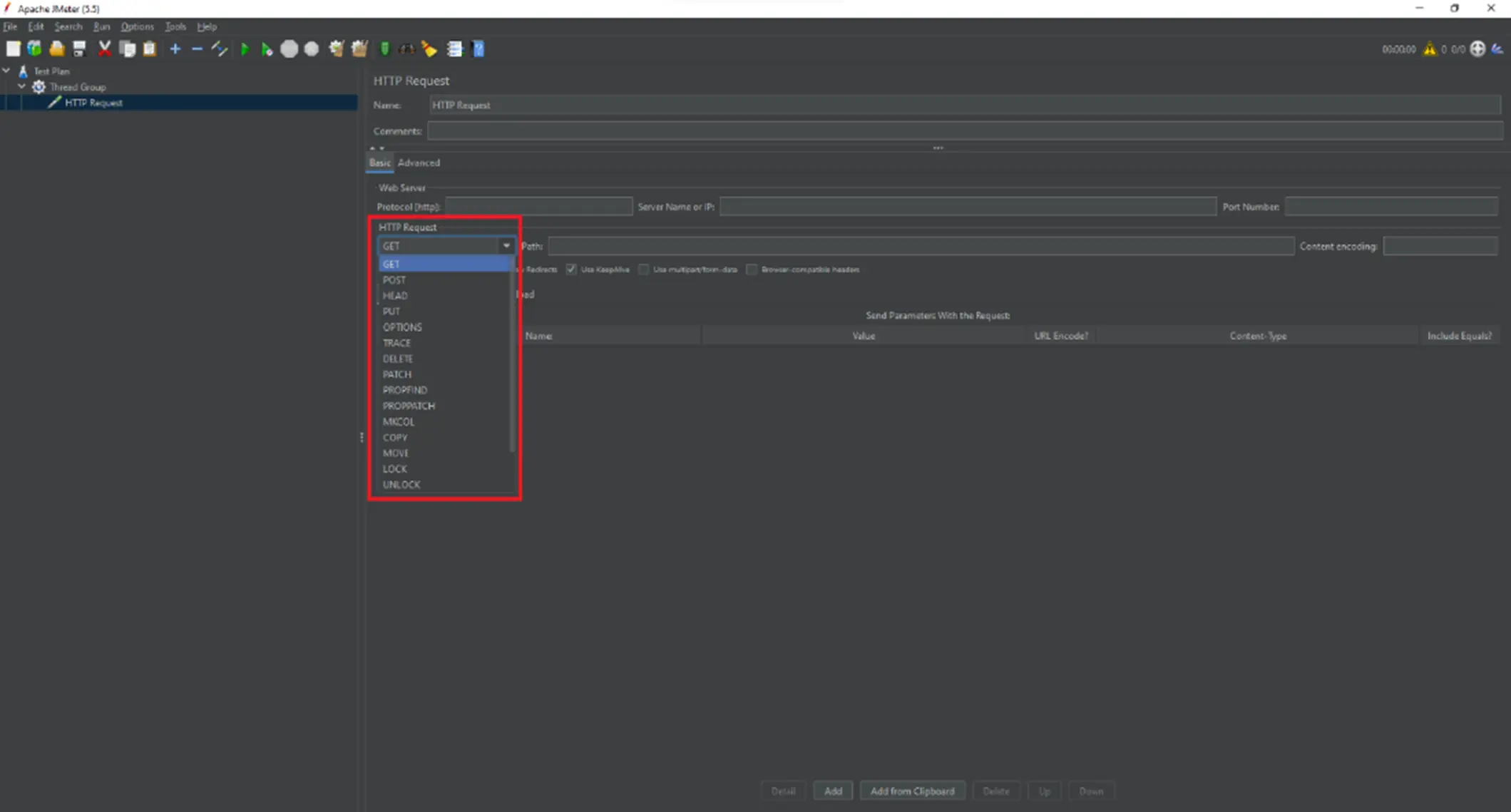
Step 6) Enter the Body Parameter if any and save the test plan
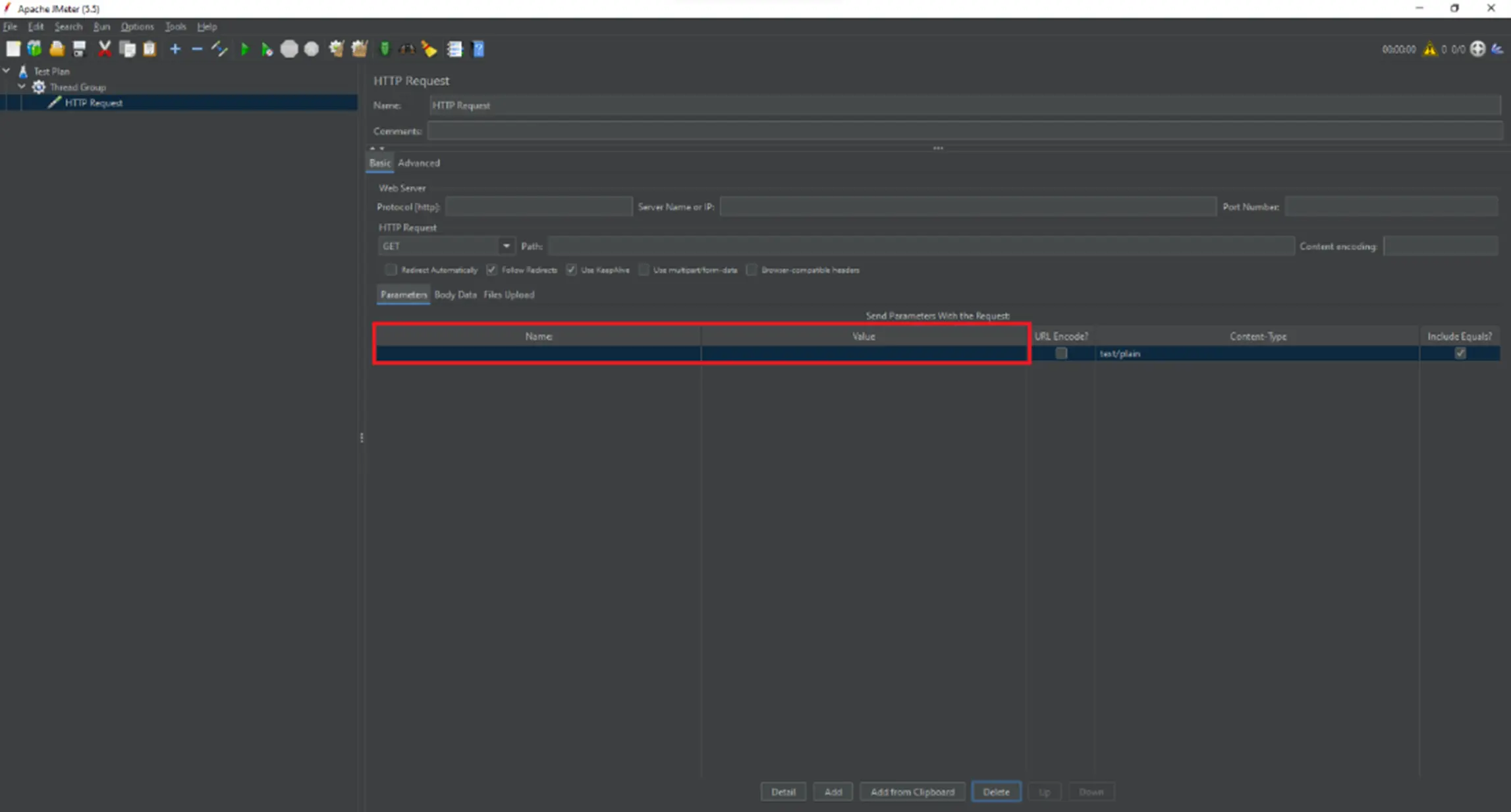
Step 7) Click on the run button to execute the test plan
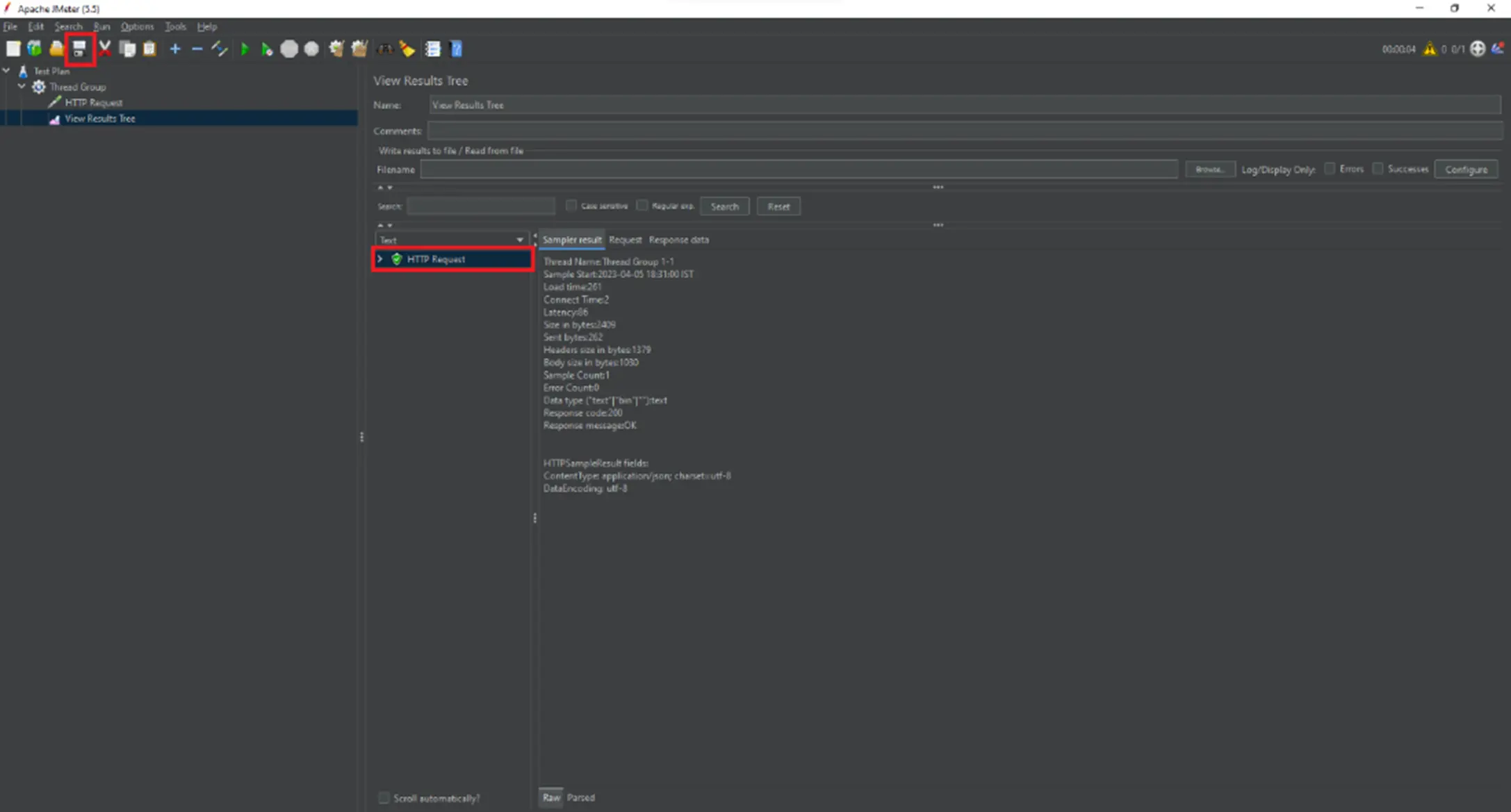
In Listener, you get all the responses that your API gives
What is a Regular Expression Extractor in JMeter
A Regular Expression Extractor in JMeter is a robust feature that is critical to API testing and more. It enables you to extract certain data from server responses by specifying patterns through regular expressions. This feature is particularly useful when working with dynamic data in API responses, like session tokens, unique IDs, or other important information. Using the Regular Expression Extractor, you can easily extract and reuse this data in follow-up requests, improving the precision of your API tests. In this blog, we'll explore more deeply how to tap the power of this extractor so you can deal with dynamic API responses like an expert and have confidence in your tests being reliable and precise.
How to use a Regular Expression Extractor
- Run your login API and check the response
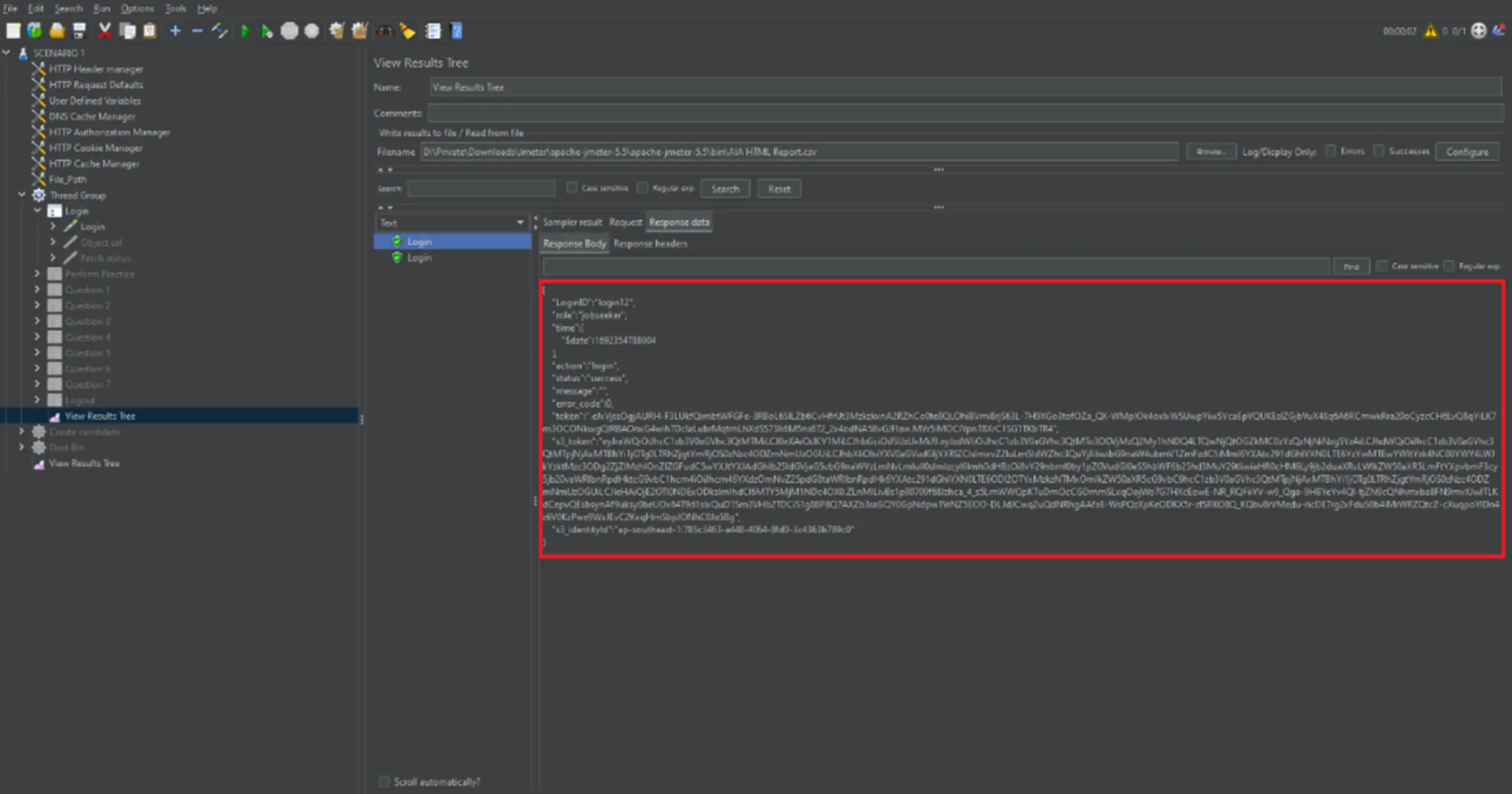
- You get something like this, the token, and now you want to pass this token to some other API request as given in the below image
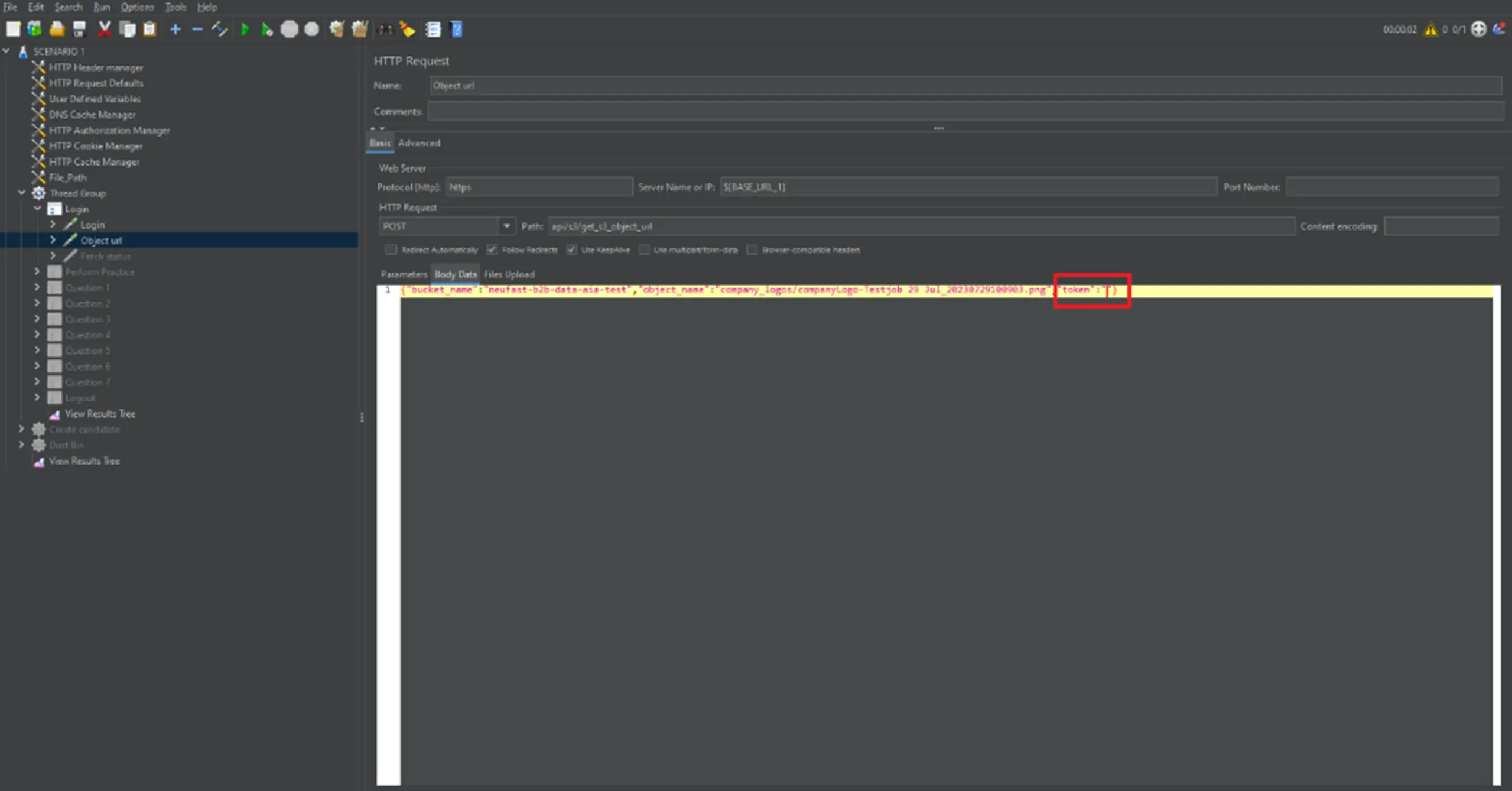
- With the help of Regular Expression Extractor, you can pass this token to some other API request, and you need to create a variable and set it in the place of value. Let's start and learn how to use Regular Expression Extractor in JMeter
How to use Regular Expression Extractor in JMeter with APIs
Step 1) Create a test plan and add login API and add Regular Expression Extractor in the login API
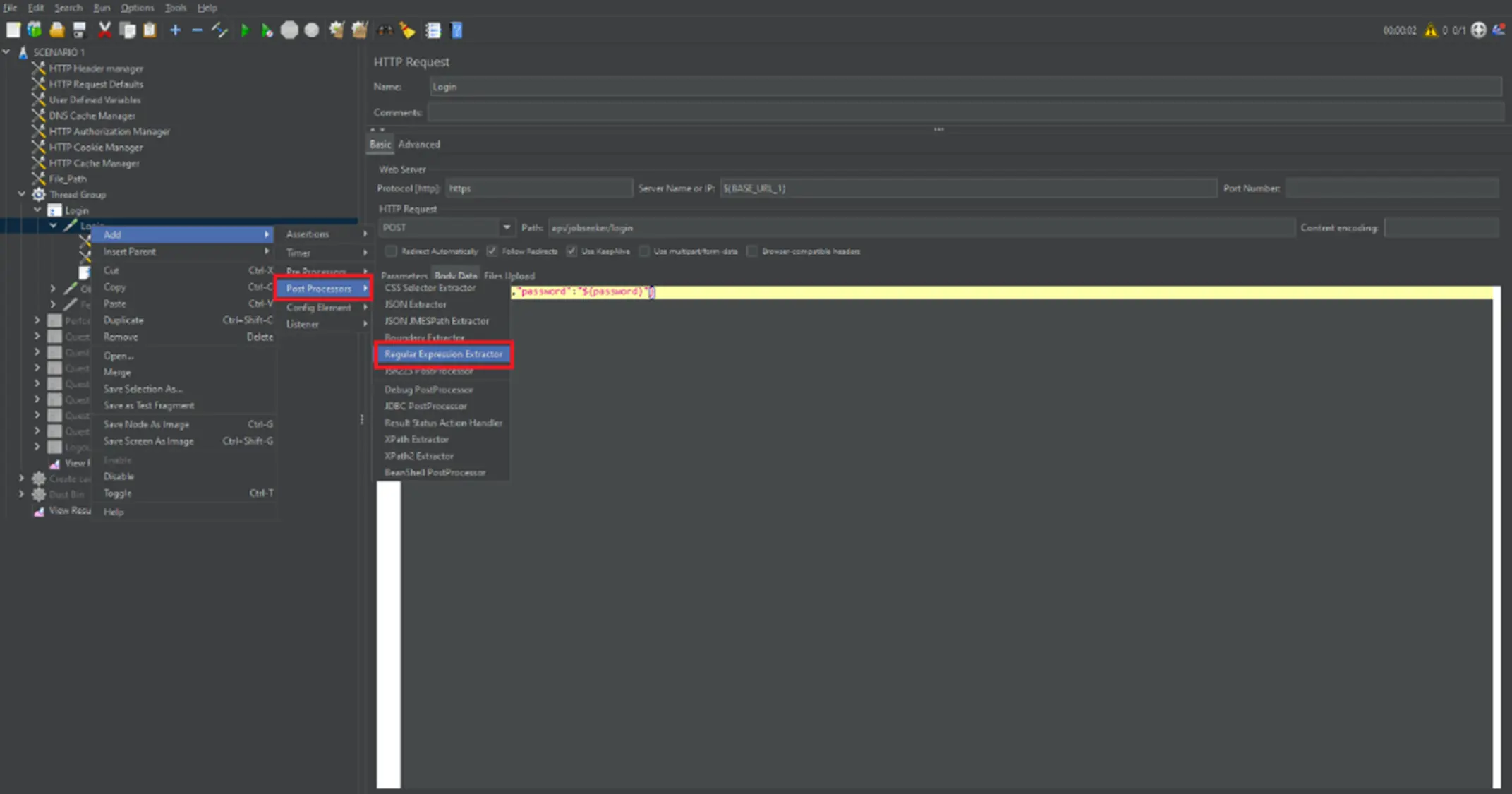
Step 2) Set a variable in the Regular Expression Extractor
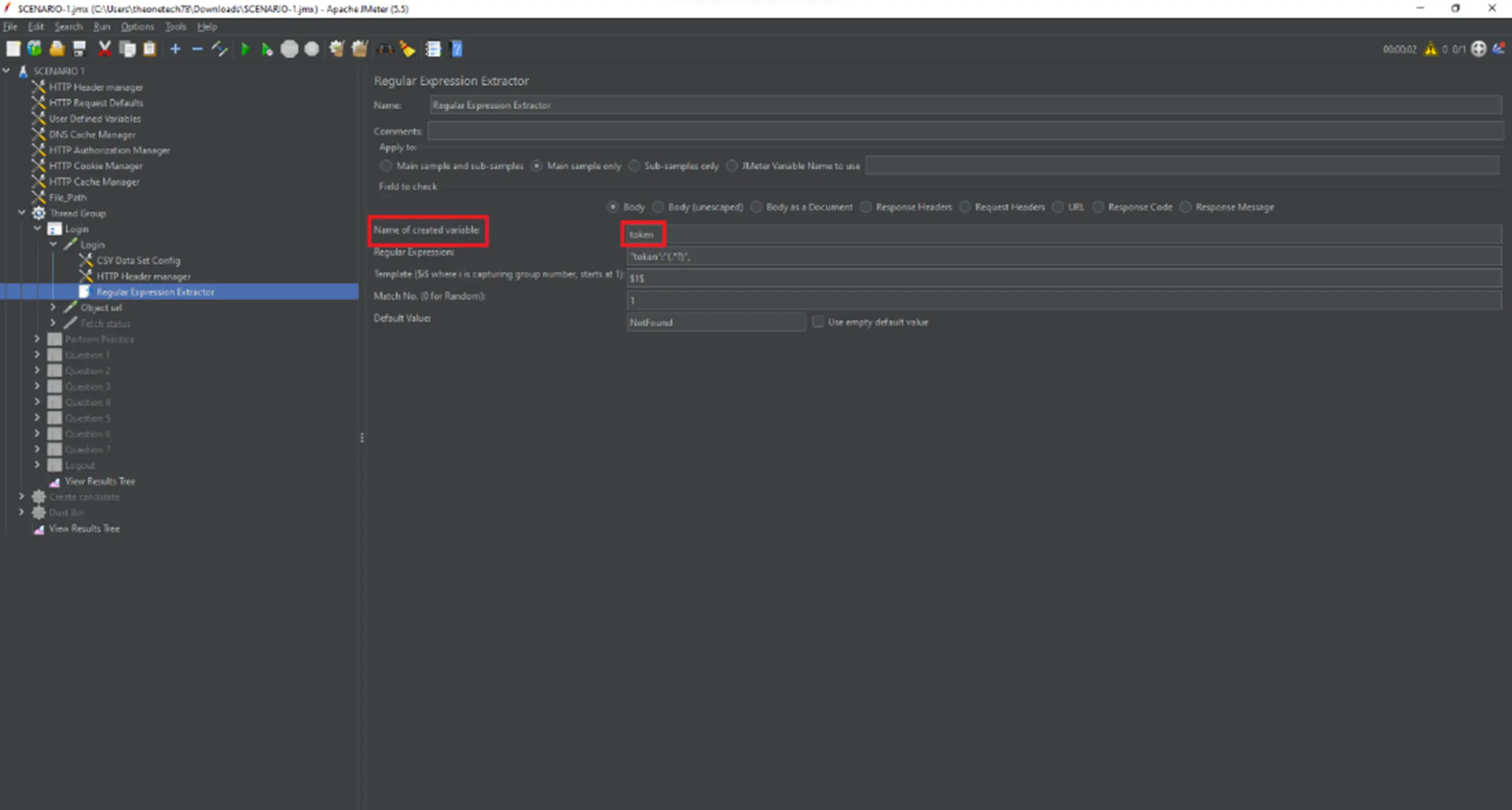
Step 3) Set Regular Expression, which you will get from the response. copy the token that you wanted to use in other API body data
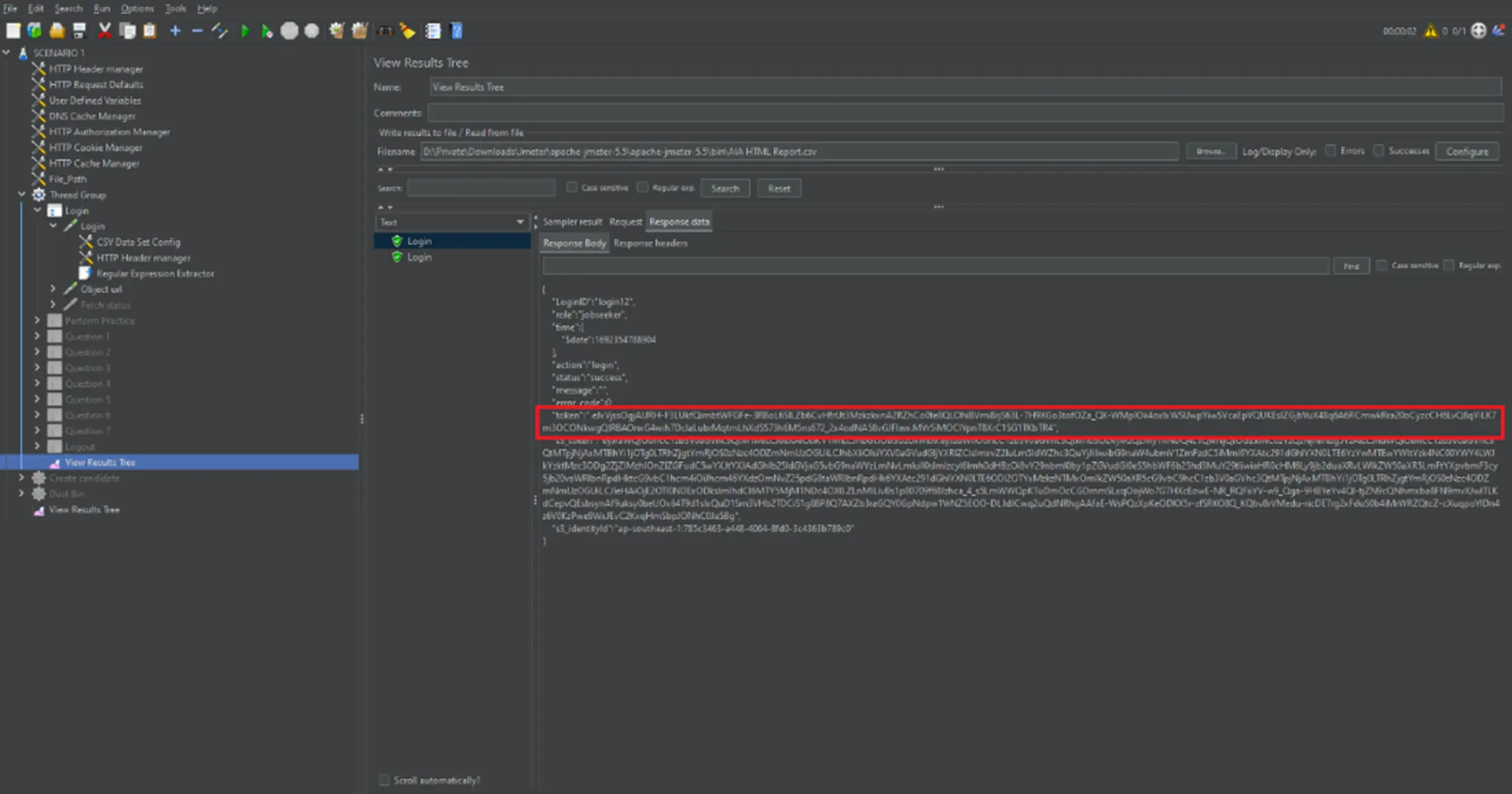
Step 4) Now paste it in the Regular Expression text box, remove the token and paste this syntax (.*?)
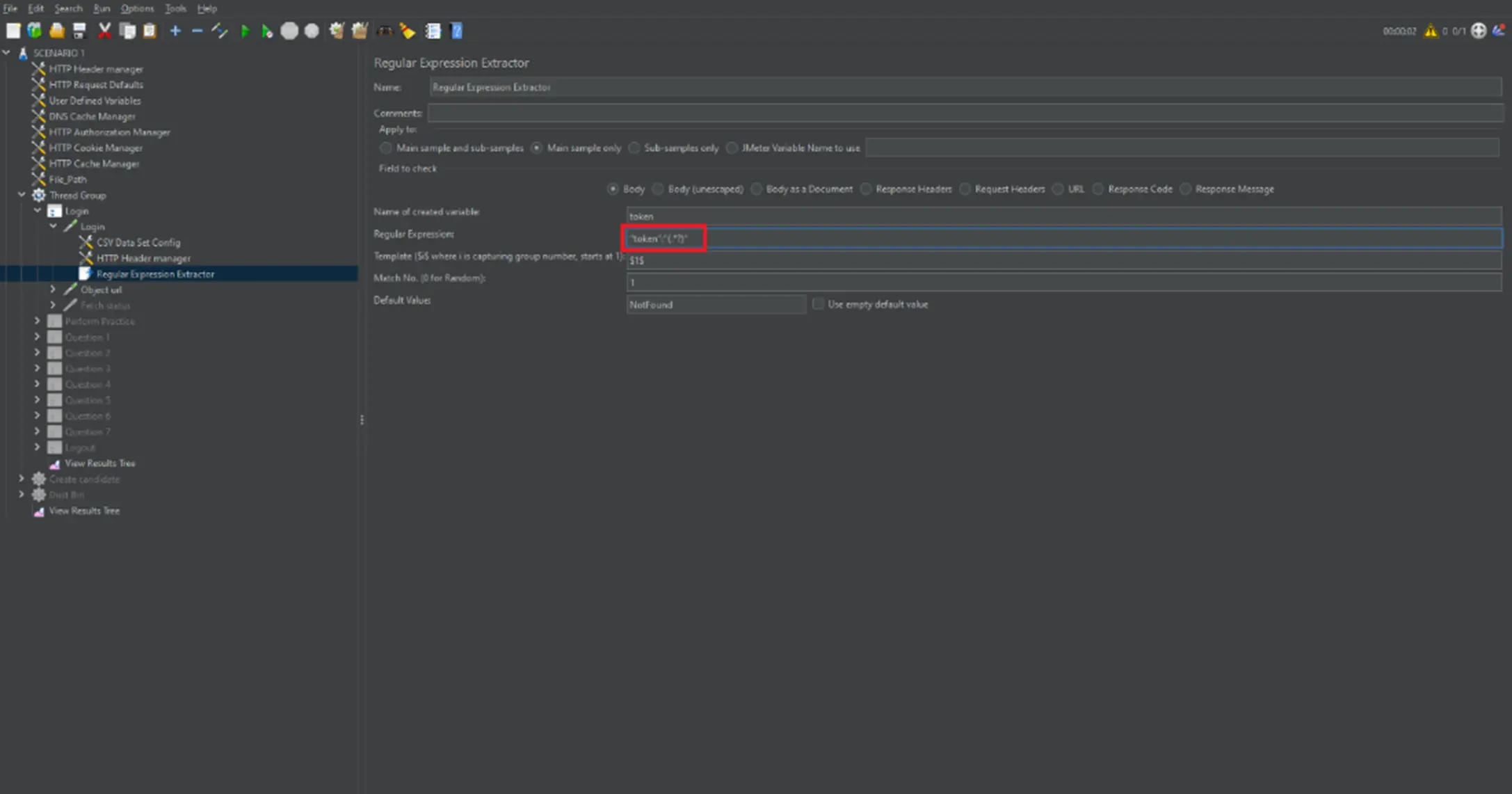
Step 5) Use this variable in place of the value of the token in other API
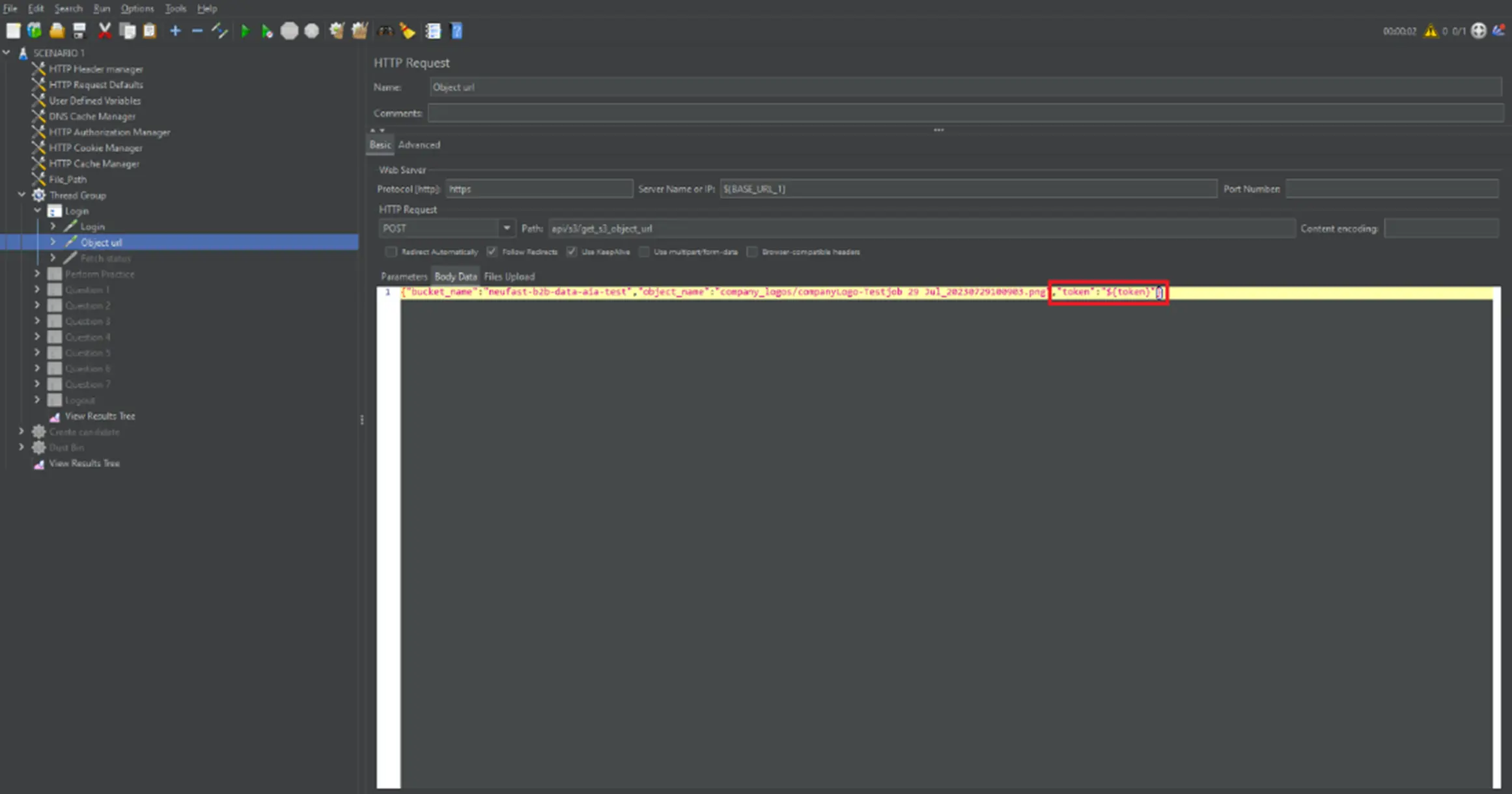
Step 6) Run/Execute both the APIs
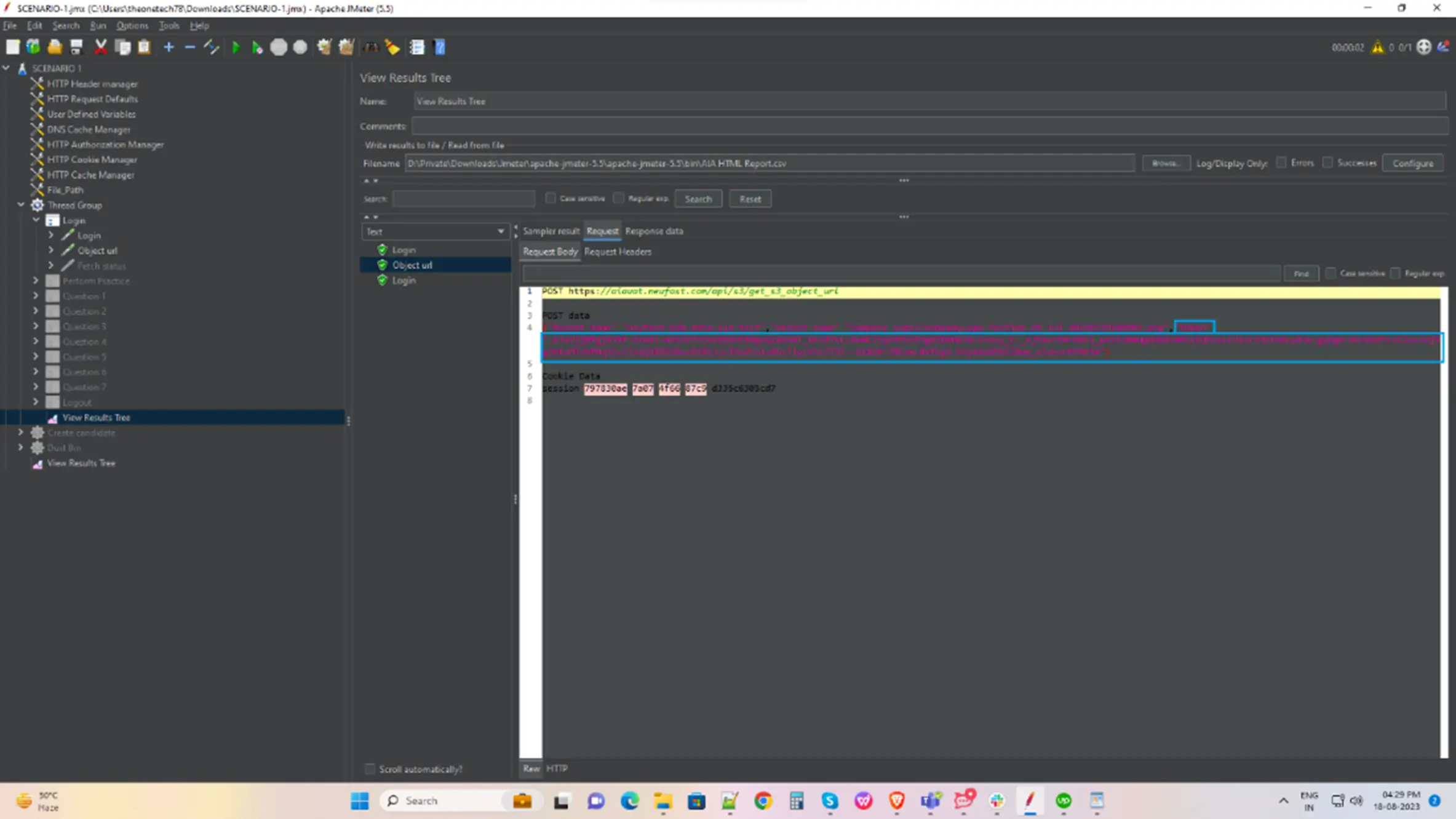
Conclusion
API testing using JMeter is a pivotal aspect of quality assurance, and the Regular Expression Extractor in JMeter is your secret weapon for precision and reliability. In this blog, we've explored the significance of API testing with JMeter, equipping you with the knowledge to assess your APIs effectively. Moreover, we've delved into the practical application of the Regular Expression Extractor, demonstrating how it empowers you to extract dynamic data from API responses with ease. By mastering this tool, you can enhance the accuracy of your API tests, ensuring your applications deliver outstanding performance. A Software Testing Company can provide expertise in leveraging JMeter for comprehensive API testing to ensure high-quality results. With JMeter and the Regular Expression Extractor in your toolkit, you're well on your way to becoming an API Tester and delivering top-notch user experiences.
About Author
Vedant Parmar is a veteran QA executive who believes in continuous learning, training, and acquiring new skills. He wants to pursue a career in Mobile Automation and Penetration Testing and strive to be a QA manager in the professional journey.
